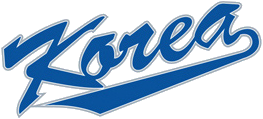The government in South Korea is planning to make major changes to develop its national sports industry. According to The Korea Herald, the government today announced its plan to encourage and promote athlete representation in its domestic professional sports market.
This announcement highlights a significant change to its sports market that will transform how business will be done moving forward: everything from contract negotiations, marketing of both the clubs and players, and player salaries. At the moment, sports agents are not allowed to represent athletes or be present in contract negotiations. For example, professional baseball players in the Korea Baseball Organization (KBO) must deal with the club directly during contract negotiations. This not only gives baseball clubs leverage when working out new deals with its players but also limits the players’ salaries.
The KBO did agree in 2001 to allow players to pursue representation but the rule hasn’t been put into effect. The proposed rule allows players to choose representation, “but only by a certified attorney who isn’t permitted to work for more than two clients at a time.”
The KBO is concerned about the adverse impact athlete representation can have in the industry, particularly the risk of a few sports agents dictating the market.
The Seoul Bar Association did file a complaint with the Fair Trade Commission in December 2014 accusing the KBO of violating anti-monopoly and fair trade laws for not implementing the agent system. The lawyers group argued…”that it was inherently unfair for the KBO to only allow players to enter contract negotiations, when athletes have little leverage and legal knowledge.”
However, the sports ministry believes athletic representation will have a positive affect on clubs and the whole national sport industry in the long-run. “Since agents will be coming into negotiating tables armed with statistics, it will also force ball clubs to accumulate numbers and facts and determine players’ wages “with objective data,” one ministry official said.”
It is yet to be determined if these proposed changes will allow foreign-based sports agency to represent Korean professionals. The government is planning to provide funding to local companies with the hopes of growing “an IMG-like sports management giant.”
